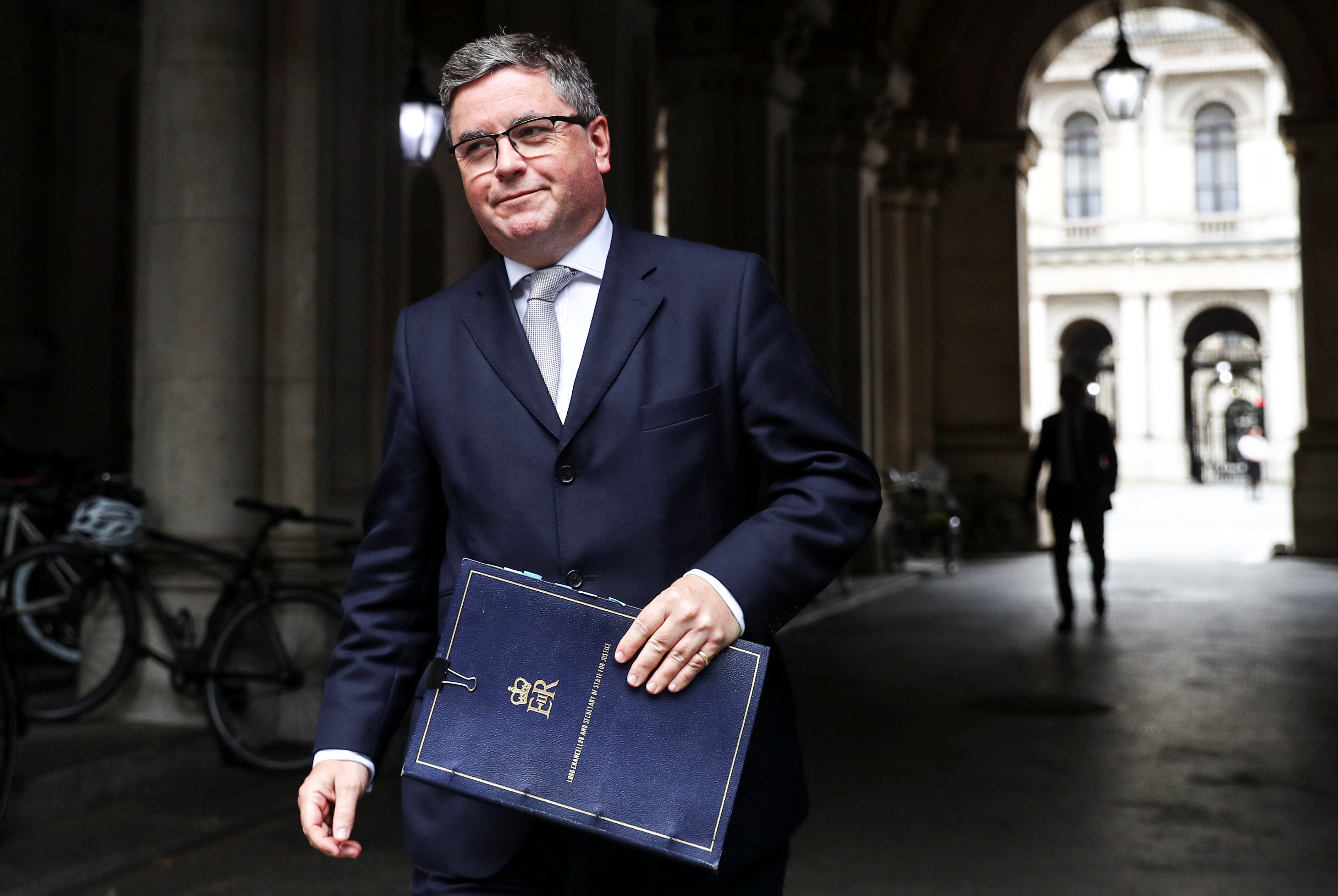Government to increase prison sentences despite minister saying longer terms ‘limited or no deterrent’
‘Harsher sentencing tends to be associated with limited or no general deterrent effect,’ said justice minister last week

The government has claimed a raft of laws to increase prison sentences will “cut crime” and increase public safety, a week after a minister said harsher sentences have “limited or no deterrent effect”.
The Police, Crime, Sentencing and Courts Bill, which is being introduced to parliament on Tuesday, contains a wide range of proposals including 10-year jail terms for people who damage memorials.
It would also introduce tougher penalties for serial burglars, knife carriers, killer drivers and children who commit murder, as well as changing release provisions to keep some prisoners inside for longer.
The justice secretary, Robert Buckland, said: “This government has pledged to crack down on crime and build safer communities. Today, we are delivering on that commitment.”
Priti Patel, the home secretary, said the bill would “cut crime and make our streets safer”. But the law was unveiled a week after a justice minister appeared to contradict their position.
Chris Philp, whose portfolio specifically covers sentencing, made the statement while turning down a Conservative MP’s request to increase the punishment for pet theft on 1 March.
“In the criminal justice system overall, the deterrent effect of sentence severity has received a high level of attention in wider research literature,” he said.
“The evidence is mixed, although harsher sentencing tends to be associated with limited or no general deterrent effect.”
Ministry of Justice statistics show that the average prison sentence in England and Wales is currently the longest it has been for a decade, standing at 19 months.
While jail terms have been increasing, some offence types like knife crime have hit record highs, while prosecutions have plummeted to a record low of 7 per cent of crimes.
Legal groups blame government budget cuts for weakening the criminal justice system across the board, and contributing to a growing backlog of court cases that is seeing “justice denied” as victims drop out.
The Conservatives’ disastrous part-privatisation of the probation service, which is now being reversed, was partly blamed for increasing reoffending, amid rising self-harm, violence and disorder in jails.
Peter Dawson, director of the Prison Reform Trust, accused the government of “using sentencing legislation to play politics”.
“Sentences for serious crime have been getting much longer for two decades now, turning our prisons into places of despair,” he added. “But there is not a shred of evidence to show that this runaway inflation in punishment reduces crime.
“Hard cases make bad law, and this confused bill repeats the mistakes of so much other politically-inspired legislation with calamitous results.”
James Mulholland QC, chair of the Criminal Bar Association, pointing to statistics showing that more than 40 per cent of rape and violence cases collapse because of “evidential difficulties as victim does not support action”.
He said that in order to protect the public, “charges need to be brought in the first place for the myriad of serious crime reported to the police each week which fail to result in any form of prosecution through the courts”.
“There is an unacceptable rise in criminal cases that fall apart completely after criminal allegations are made to police, pre charge, due in large part to end-to-end delays across the justice system as a result of underfunding from policing to court availability,” Mr Mulholland said.
Dr Kate Paradine, chief executive of the Women in Prison group, said: “There is no evidence that harsher and longer prison sentences make our communities safer or help rehabilitation. Alongside building more prison places, this bill risks entrenching inequality and an already archaic system without solving the harms that plague our society.
“Prisons are a dead end that won’t solve the poverty, domestic abuse, mental ill health and harmful substance use in our communities which underlies offending.”
A government spokesperson said: “We make no apologies for prioritising public protection by ensuring serious and dangerous offenders are off our streets for longer.
“At the same time, our 20,000 extra police will help to deter criminals and significantly reduce their chances of evading justice.”
Days before losing his post as justice secretary in 2019, David Gauke appealed for the government to “follow the evidence” after research by the Ministry of Justice found prison sentences of six months or less were “ineffective” and should be abolished.
“We should be extremely cautious about continuing to increase sentences as a routine response to concerns over crime,” Mr Gauke said at the time.
“It is not a choice between hard and soft justice, it is a choice between effective and ineffective justice.”
The plans were scrapped after Boris Johnson became prime minister and his government has introduced several laws to increase prison sentences for different crimes.
Join our commenting forum
Join thought-provoking conversations, follow other Independent readers and see their replies
Comments




Bookmark popover
Removed from bookmarks